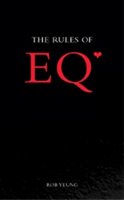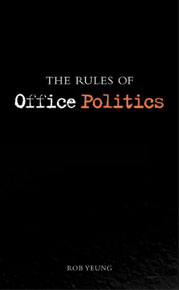The human animal
 There's been a lot of coverage over the resignation of Lord Browne, one of the most highly rated business people in Britain over his lies to cover up his private life. I was asked by The Observer newspaper to comment on what drives successful people to have such lapses.
There's been a lot of coverage over the resignation of Lord Browne, one of the most highly rated business people in Britain over his lies to cover up his private life. I was asked by The Observer newspaper to comment on what drives successful people to have such lapses.
How brilliant men can be undone by power
Lord Browne resigned because he lied to a court about a trivial thing: the manner of his meeting Jeff Chevalier - a terrible error of judgment for a man in whom 97,000 employees and 1.2 million shareholders placed their trust. Why did he do it?
Psychologists point to several possible reasons: the isolation experienced by leaders at the top of big organisations; the pressure they are placed under; the effect of holding power in one's hands and the lack of restraining influences.
Browne was known as the 'Sun King' of the oil industry, a reference to Louis XIV of France, an absolute monarch who surrounded himself with fawning courtiers at the palace he built at Versailles. Like Louis, Browne was known at the highest levels in the capitals of Europe. Browne was also well received in the US and the UK, where he was on terms with the Prime Minister close enough to allow BP to be dubbed 'Blair Petroleum'.
But he was reputed, also like Louis, to be a man to whom it was unpleasant to take bad news.
Rob Yeung, a director at Talentspace, a leadership consultancy, says: 'The type of judgment you are asked to make changes as you move up an organisation. Low down an organisation, you are given much more discrete, less ambiguous problems to deal with. As you move up, there are fewer right and wrong answers.'
So what causes someone capable of dealing with these complicated decisions to make such an obvious error of judgment? Emma Farnsworth, an occupational psychologist from Blue Edge Consulting says: 'There is huge pressure if you are in the role of leader. The more successful you are, the more you expect from yourself - and the more others expect from you.'
There were few who seemed outwardly able to cope with this better than Browne in his heyday. But Yeung says: 'However much we delude ourselves to the contrary, the truth is that human beings are animals. We have quite ancient parts of our brains that control instincts like fight or flight. When things are going well, you make rational decisions, but the moment you are under pressure your dark side can come out.
' Lord Browne was a very private individual. His private life was very sensitive and it caused him to think irrationally rather than rationally.'
You can read the rest of the (fairly lengthy) piece here.









